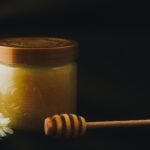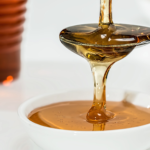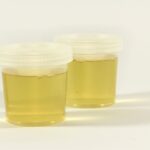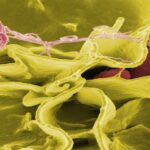Sweet news for those looking for new antibiotics: A new research published in the July 2010 print edition of the FASEB Journal explains for the first time how honey kills bacteria. Specifically, the research shows that bees make a protein that they add to the honey, called defensin-1, which could one day be used to treat burns […]
Manuka honey could help clear deadly drug-resistant lung infection
A potential new treatment combining natural manuka honey with a widely used drug has been developed by scientists at Aston University to treat a potentially lethal lung infection and greatly reduce side effects of one of the current drugs used for its treatment. The findings, which are published in the journal Microbiology, show that the scientists in […]
Recurrent UTIs linked to gut microbiome, chronic inflammation
One of the greatest frustrations regarding urinary tract infections (UTIs) is that they so often recur. UTIs are caused by bacteria in the urinary tract and characterized by frequent and painful urination. A round of antibiotics usually clears up the symptoms, but the relief is often temporary: A quarter of women go on to develop […]
Friendly bacteria love the humble apple
Why does an apple a day keep the doctor away? New research published in the open access journal BMC Microbiology contributes to our understanding of why eating apples is good for you. Microbiologists from the National Food Institute at the University of Denmark fed rats on a diet that was rich in whole apples, apple juice, purée […]
Antibiotics destroy ‘good bacteria’ and worsen oral infection
Research shows that the body’s own microbes are effective in maintaining immune cells and killing certain oral infections. A team of Case Western Reserve University researchers found that antibiotics actually kill the “good” bacteria keeping infection and inflammation at bay. Scientists have long known that overuse of antibiotics can do more harm than good. For […]
A sulfosugar from green vegetables promotes the growth of important gut bacteria
A team of scientists has analyzed how microbes in the gut process the plant-based, sulfur-containing sugar sulfoquinovose. Their study discovered that specialized bacteria cooperate in the utilization of the sulfosugar, producing hydrogen sulfide. This gas has disparate effects on human health: at low concentrations, it has an anti-inflammatory effect, while increased amounts of hydrogen sulfide […]
Spaceflight Can Change Bacteria Into More Infectious Pathogens
Space flight has been shown to have a profound impact on human physiology as the body adapts to zero gravity environments. Now, a new study led by researchers from the Biodesign Institute at Arizona State University has shown that the tiniest passengers flown in space — microbes — can be equally affected by space flight, […]
Raisins Fight Oral Bacteria
Compounds found in raisins fight bacteria in the mouth that cause cavities and gum disease, according to researchers at the University of Illinois at Chicago. “Our laboratory analyses showed that phytochemicals in this popular snack food suppressed the growth of oral bacteria associated with caries and gum disease,” said Christine Wu, professor and associate dean […]
Beneficial skin bacteria protect against skin cancer
Science continues to peel away layers of the skin microbiome to reveal its protective properties. In a study published in Science Advances on February 28, University of California San Diego School of Medicine researchers report a potential new role for some bacteria on the skin: protecting against cancer. “We have identified a strain of Staphylococcus epidermidis, common on […]
Manuka honey to kill drug-resistant bacteria found in cystic fibrosis infections
Manuka honey could provide the key to a breakthrough treatment for cystic fibrosis patients following preliminary work by experts at Swansea University. Dr Rowena Jenkins and Dr Aled Roberts have found that using Manuka honey could offer an antibiotic alternative to treat antimicrobial resistant respiratory infections, particularly deadly bacteria found in Cystic Fibrosis (CF) infections. […]









